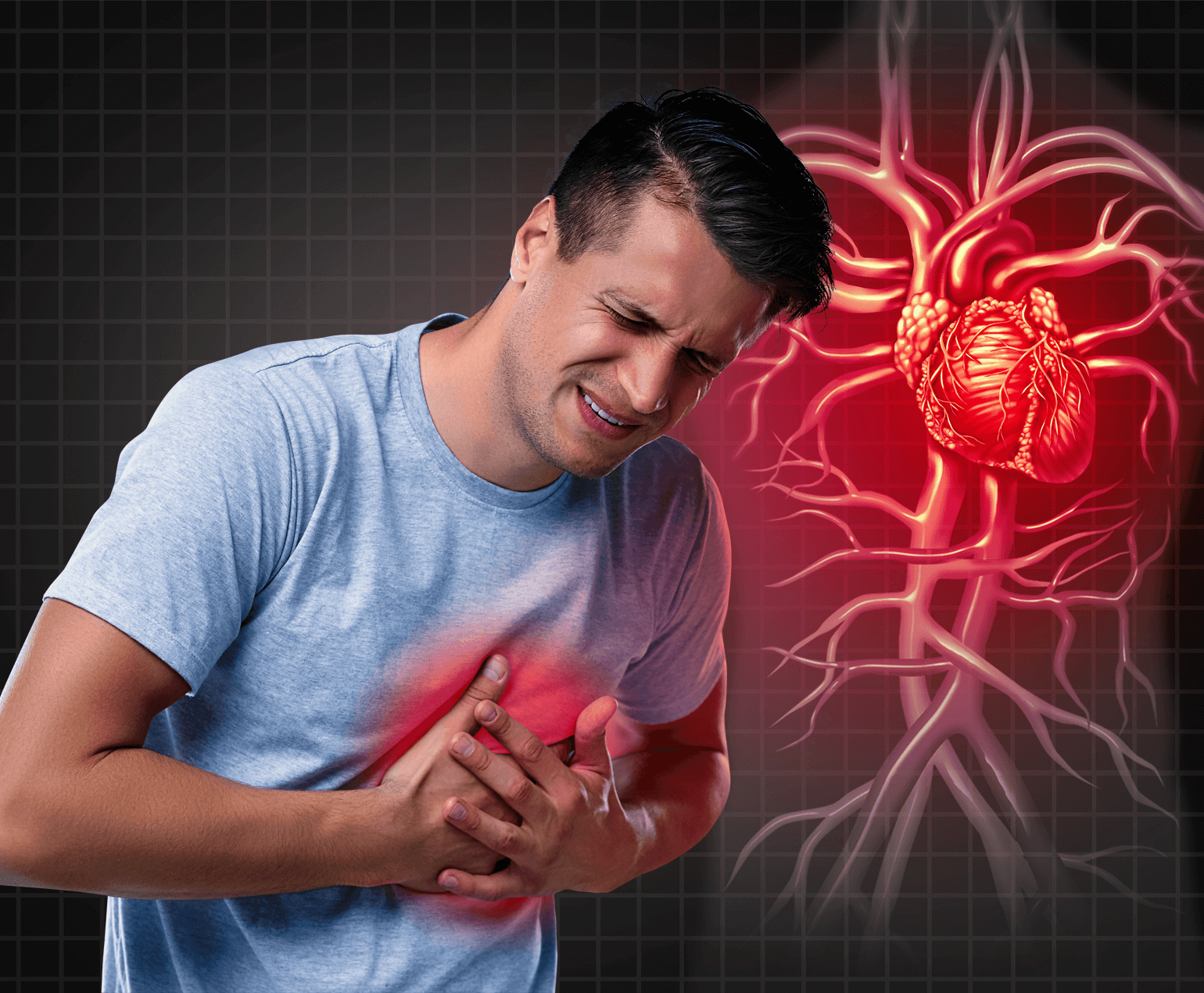Acute coronary syndrome (ACS) refers to conditions where the blood supply to the heart muscle is suddenly blocked or severely reduced. It is a life threatening condition affecting millions of people every year and requires prompt diagnosis and care. Unstable angina and heart attack both are types of ACS.
Causes
The build-up of plaque in the arteries can block the blood flow to the heart. Plaque is a fatty substance made up of cholesterol, fat and other substances.
Gradual build-up of plaque can cause an artery to become very narrow and later completely blocked. The plaque can rupture suddenly leading to the formation of a blood clot that narrows or blocks the artery.
Symptoms
Some signs and symptoms of ACS include:
- Chest pain or severe discomfort
- Pain spreading from the chest to other parts of the body
- Shortness of breath
- Sudden, heavy sweating
- Nausea
- Fast or irregular heartbeat
Symptoms may vary depending on the patient’s age, sex and other medical conditions.
Risk factors
Certain risk factors increase the probability of developing ACS. People over the age of 45, those who are obese, and those who smoke are at risk.
Similarly, other conditions like high blood cholesterol, hypertension, diabetes and family history of heart disease also cause a risk of ACS.
Types of ACS
ACS includes three types of coronary artery disease that can damage heart tissue. These are:
- Unstable angina: It comprises sudden and unexpected chest pain and is a warning sign of a heart attack.
- NSTEMI: A Non-ST-elevation myocardial infarction (NSTEMI) is a heart attack in which the coronary arteries aren’t fully blocked.
- STEMI: An ST-elevation myocardial infarction (STEMI) is a severe heart attack that occurs when the blood flow to the heart is fully blocked.
Diagnosis and Treatment
There are a number of tests that doctors may recommend to diagnose ACS including:
- Electrocardiogram (ECG) – It measures the heart’s electrical activity.
- Blood test – Blood tests such as troponin blood test can detect the cause of chest pain and the risk of a heart attack.
- Echocardiogram – This test uses sound waves to detect if heart has been damaged or has any other problems.
Treatment for ACS may comprise medicines, surgery, or other procedures to treat the symptoms and restore blood flow to the heart. Doctors may prescribe different medicines such as aspirin, beta blockers, blood thinners, clot dissolving drugs, angiotensin converting enzyme (ACE) inhibitors, or nitroglycerin based on the patient’s condition.
Angioplasty procedure is performed to open a clogged artery using a long, thin tube known as catheter. Bypass surgery is performed to route the blood around the blocked artery.
Prevention
According to Dr Ramji Mehrotra, the risk of ACS can be reduced to a great extent by adopting a healthy lifestyle.
This includes consuming a balanced diet with plenty of whole grains, vegetables and fruits while limiting foods with high cholesterol and saturated fats. It is also important to maintain optimum weight by exercising regularly and avoiding smoking and tobacco in any form as it can damage the heart.
It is also advised to get regular preventive health screenings done and manage health conditions such as cholesterol, blood pressure and diabetes under control.

